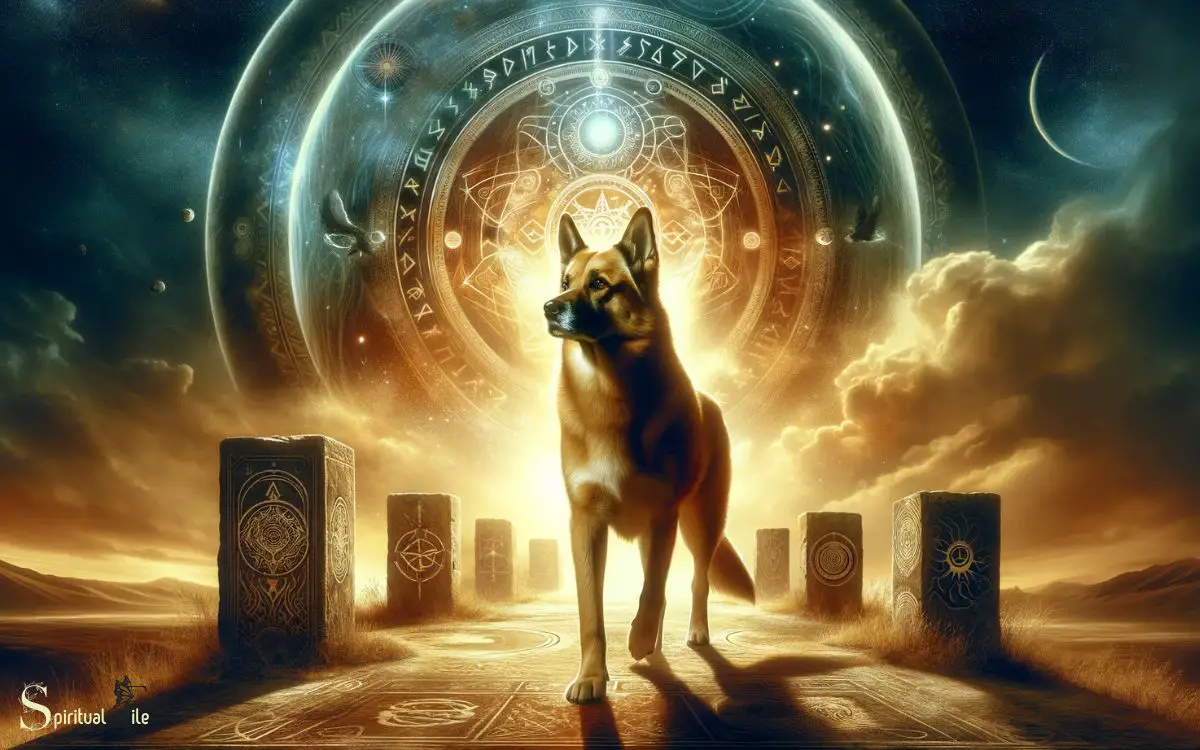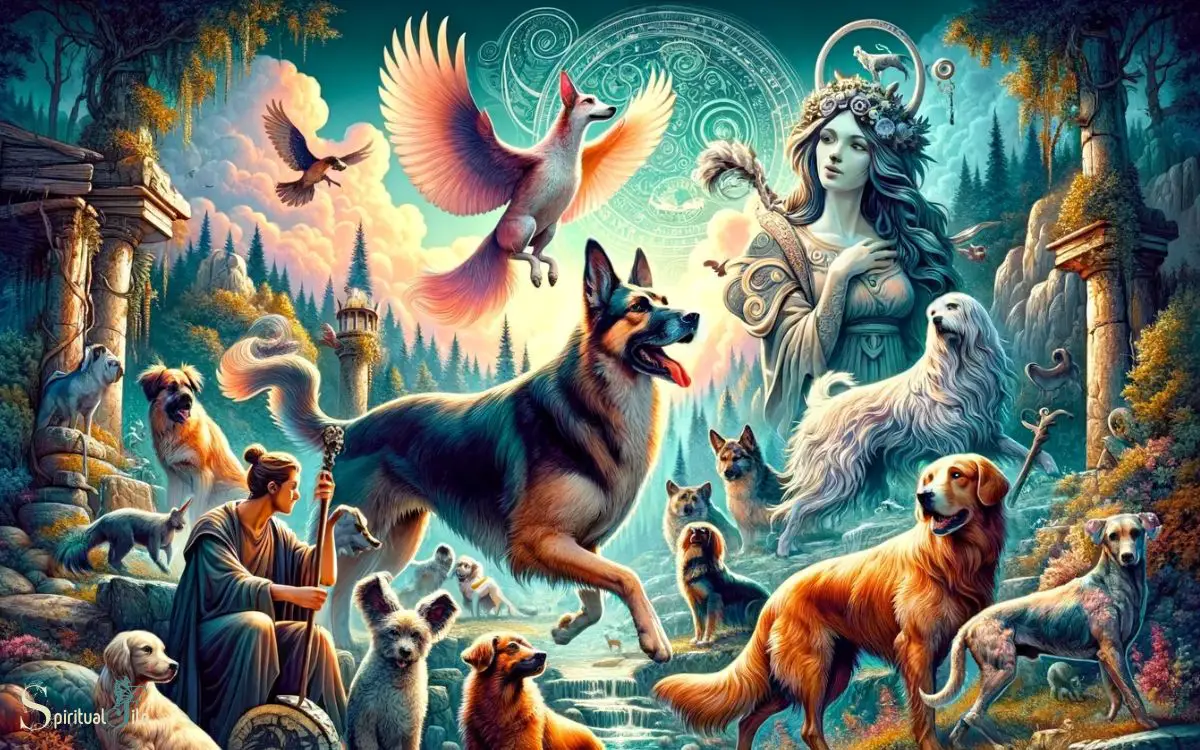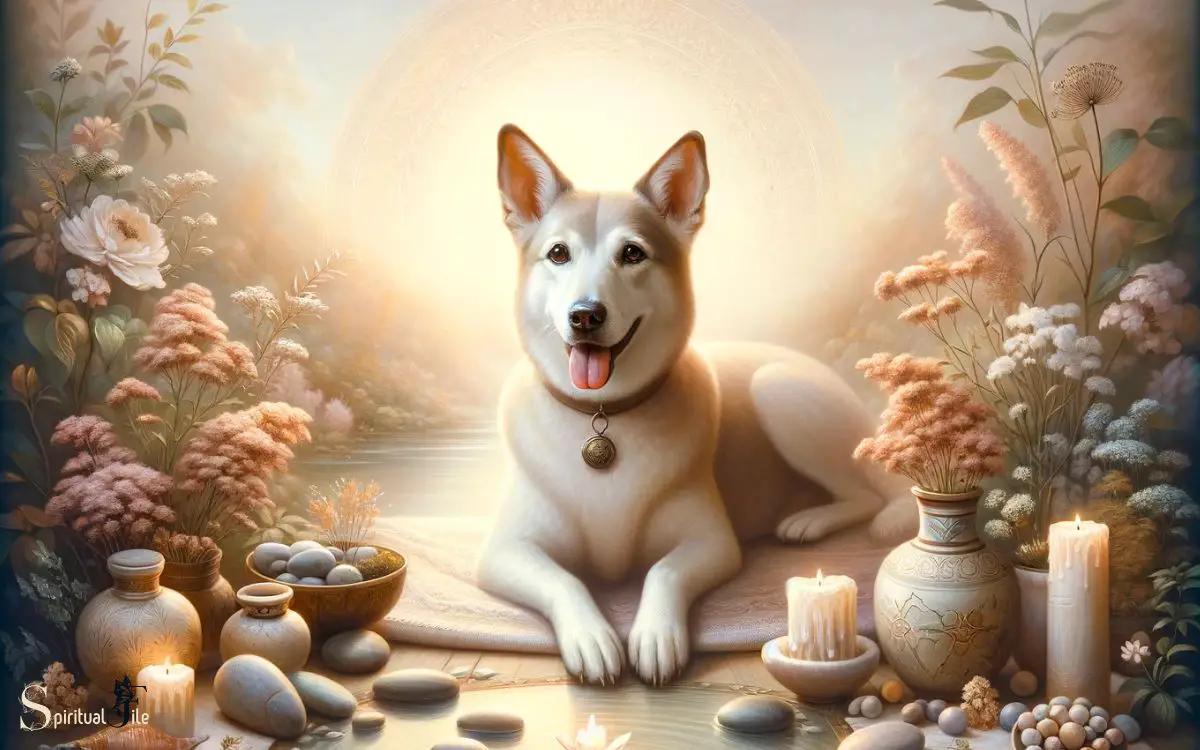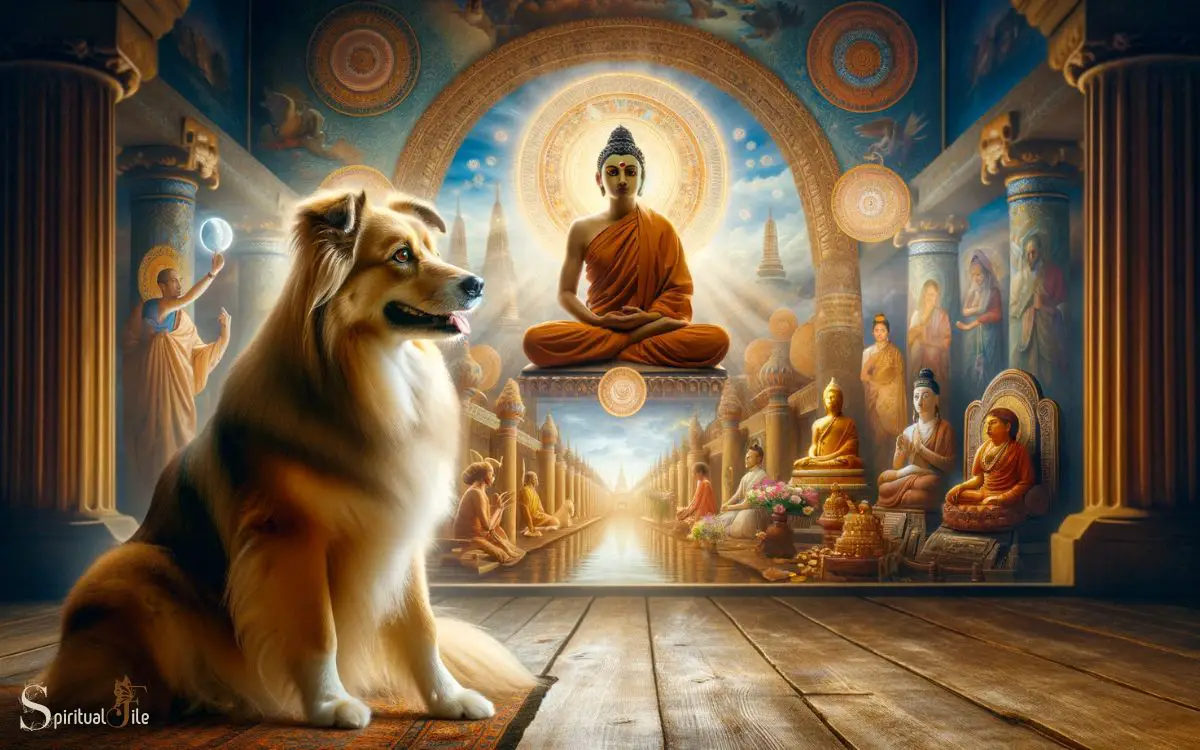What Do Dogs Symbolize Spiritually? Loyalty!
Dogs are deeply symbolic in spiritual contexts, often representing guardianship, loyalty, and guidance.
They are revered across various cultures for their protective instincts and are frequently associated with healing and divine connections.
Spiritually, dogs are seen as more than just pets or companions; they embody a range of virtues and roles.
For instance:
- Guardianship: Dogs are often perceived as vigilant protectors, both in the physical and spiritual realms.
- Loyalty: Their unwavering loyalty makes them a symbol of faithfulness and trust.
- Guidance: As spiritual guides, dogs are believed to help navigate life’s journey and may even be seen as messengers from the divine.
In mythology and folklore, there are numerous tales of dogs serving gods or heroes, showcasing their importance in spiritual narratives.
In spiritual symbolism, dogs serve as a bridge between the earthly and the divine, reflecting unspoken bonds and the enduring spirit of companionship.

Key Takeaway
Spiritual Meanings of Dogs in Various Cultures and Traditions
| Culture/Tradition | Spiritual Symbolism | Common Associations |
|---|---|---|
| General | Loyalty, Protection, Guidance | Friendship, Trust |
| Christianity | Faithfulness, Protection, Service | Miracles, Divine Inspiration |
| Buddhism | Compassion, Mindfulness, Presence | Enlightenment, Meditation |
| Native American | Trust, Loyalty, Intelligence | Guides, Totem Animals |
| Chinese | Prosperity, Good Fortune, Loyalty | New Year, Energy |
| Ancient Egypt | Guidance to Afterlife, Protection | Anubis, Ceremonial |
| Celtic | Healing, Transformation, Understanding of Magic | Guides, Shapeshifters |
| Norse Mythology | Shapeshifting, Connection with the Underworld | Odin’s Companions |
| Greek Mythology | Watchfulness, Guardians of the Underworld | Cerberus, Hecate’s Familiar |
| Hinduism | Devotion, Guarding Sacred Spaces, Destruction of Evil | Bhairava’s vehicle, Dharma |
Dogs as Guardians and Protectors

Dogs have long been revered as steadfast guardians and protectors, serving as loyal companions and defenders throughout history.
Their unwavering loyalty and protective instincts have led them to be symbolized as guardians in various spiritual and cultural contexts.
In many belief systems, dogs are seen as symbols of vigilance, courage, and fidelity, embodying the qualities of a devoted protector.
Their ability to sense danger and their commitment to safeguarding their human companions have elevated them to a revered status as symbols of protection.
In spiritual teachings, dogs are often associated with qualities such as loyalty and guidance, reflecting their role as guardians of the soul.
This symbolic representation of dogs as protectors serves to remind us of the noble and selfless aspects of their nature, inspiring reverence and admiration for these remarkable creatures.
Dogs as Symbols of Loyalty

As symbols of loyalty, dogs exemplify unwavering devotion and steadfast companionship, embodying the virtues of fidelity and trustworthiness in various spiritual and cultural contexts.
Their symbolic representation of loyalty is profound and widely recognized, serving as a source of inspiration and admiration for many.
Here are three ways in which dogs are seen as symbols of loyalty:
- Unconditional Commitment: Dogs are revered for their unwavering commitment to their owners, showcasing a loyalty that knows no bounds.
- Faithful Guardians: In many spiritual traditions, dogs are viewed as faithful guardians, protecting and guiding their human companions through life’s challenges.
- Symbol of Trust: Their loyalty serves as a powerful symbol of trust, reminding individuals of the importance of remaining faithful and dependable in their relationships and endeavors.
Dogs in Mythology and Folklore

In ancient mythology and folklore, dogs have been revered as significant beings since time immemorial, playing integral roles in shaping cultural beliefs and narratives.
In Greek mythology, the three-headed dog Cerberus guarded the gates of the Underworld, symbolizing the boundary between the living and the dead.
The Norse mythology featured Garm, a dog associated with the onset of Ragnarok, the end of the world.
In Egyptian mythology, the dog-headed god Anubis guided souls to the afterlife, embodying protection and guidance.
Additionally, in various cultures, dogs have been portrayed as companions to deities, hunters, and guardians, reflecting their loyalty, bravery, and protective nature.
Their presence in folklore often represents a deep connection between humans and the spiritual realm, embodying qualities of vigilance, companionship, and unwavering loyalty across different cultural narratives.
Dogs as Spiritual Guides and Healers

Spiritually, dogs have been regarded as spiritual guides and healers across various cultures, continuing their historical role as significant beings in shaping cultural beliefs and narratives.
Their presence and actions have been seen as symbolic representations of spiritual guidance and healing.
Here are three ways dogs serve as spiritual guides and healers:
- Intuition and Sensitivity: Dogs are believed to possess a heightened intuition and sensitivity, allowing them to perceive and respond to spiritual energies and emotions.
- Comfort and Emotional Support: Their loving and loyal nature provides comfort and emotional support to individuals in need, offering a sense of healing and solace.
- Symbolism of Protection: Dogs are seen as protectors, guarding against negative energies and providing a sense of spiritual security.
These attributes contribute to their revered role as spiritual guides and healers in various cultures.
This profound spiritual connection with dogs transitions seamlessly into the subsequent section about ‘the divine connection: dogs in religion’.
What Spiritual Symbolism Do Dogs and Robins Share?
Dogs and robins share the symbolism of joy, representing happiness and positivity in different spiritual beliefs. Both animals are seen as messengers of joy and are viewed as symbols of hope, renewal, and good fortune. Across various cultures, they are revered for their ability to bring happiness and upliftment to those they encounter.
The Divine Connection: Dogs in Religion

Dogs embodying spirituality play a significant role in religious practices and beliefs, reflecting their revered status in various faith traditions.
In Hinduism, the dog is the mount of the fearsome god Bhairava, symbolizing protection and loyalty.
In ancient Egyptian religion, the dog-headed god Anubis was the protector of graves and guide to the afterlife, showcasing the significance of dogs in the journey beyond earthly life.
Additionally, in Christianity, dogs are mentioned in the Bible as loyal companions and symbols of vigilance and loyalty. The image of a dog remaining loyal to its master regardless of circumstances is often used to illustrate faithfulness in religious teachings.
Across different faiths, dogs are seen as creatures with divine qualities, serving as protectors, guides, and loyal companions, thus solidifying their spiritual and religious significance.
Conclusion
Dogs hold a significant spiritual symbolism as guardians, loyal companions, and guides in various cultures and religions.
Their presence in mythology and folklore further emphasizes their spiritual significance. They are revered for their ability to protect, heal, and guide individuals on a spiritual journey.
The spiritual connection between humans and dogs is a testament to the profound and enduring bond that exists between the two species, transcending time and culture.






